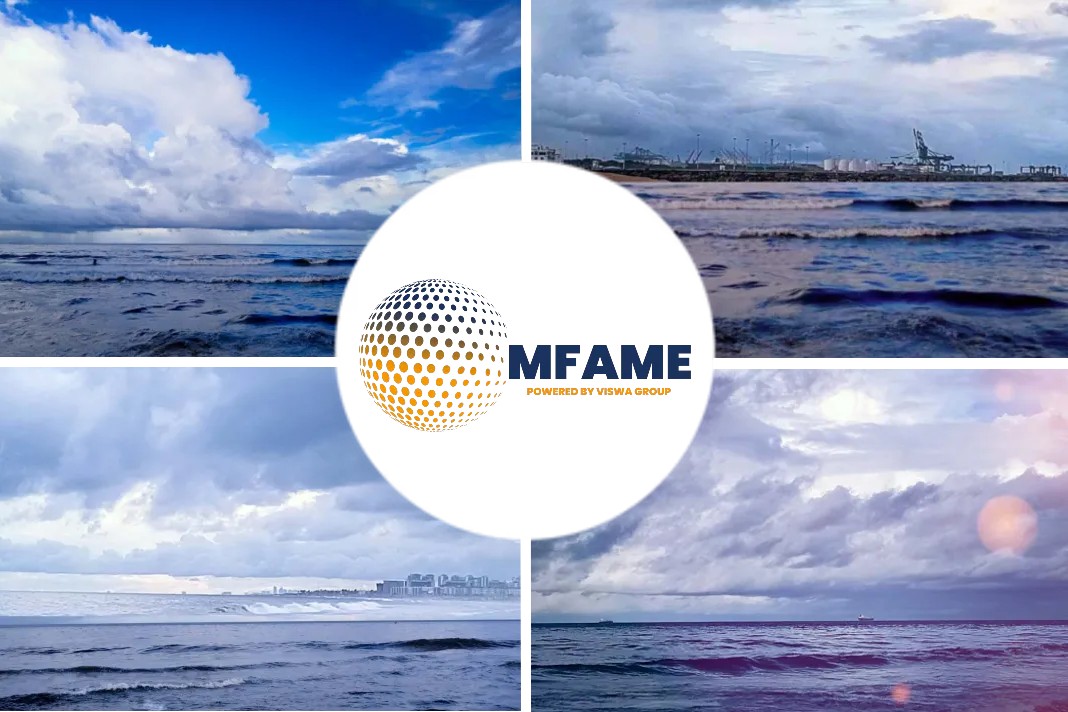 As the IMO 2020 sulphur cap closes in, owners of feeder vessels are set to benefit from “market disruption”. The benefit will come with a “significant upside” on charter rates for ships fitted with exhaust gas cleaning systems (scrubbers), reports The Loadstar.
As the IMO 2020 sulphur cap closes in, owners of feeder vessels are set to benefit from “market disruption”. The benefit will come with a “significant upside” on charter rates for ships fitted with exhaust gas cleaning systems (scrubbers), reports The Loadstar.
MPC Charters
Speaking during the MPC Container Ships Q3 earnings call, chief executive Constantin Baack said the company had concluded “favourable” long-term charters for six ships due to be fitted with scrubbers and was talking with a number of other container lines about “scrubber-linked charters” for some 20 more of its 69-strong fleet.
MPC recently exercised its options for a further five retro-fit scrubber installations on its fleet, taking the total so far to 10, and has options on a further 40.
“There is definitely an appetite,” said Mr. Baack, referring to the interest from liner companies, “it is a dynamic that has picked up in the last couple of months.”
Balancing the Scrubbers Economics
He said the company was adopting a “balanced approach” on scrubber economics, with the top candidates currently being high-reefer ships of about 2,500 teu, deployed between Europe and the Caribbean and South America as an example.
He explained that, owing to the large number of sea days, the potential saving based on a difference in price between heavy fuel oil (HFO) and low-sulphur fuel oil (LSFO) of $200 per ton, was a massive $8,000 per day.
The Company’s IMO Compliance Plan
On the basis of a $200 spread between the price of HFO and LSFO when the IMO’s 0.5% sulphur cap becomes law on 1 January 2020, MPC has calculated the payback period on the cost of installing a scrubber at about 18 months.
Mr Baack confirmed MPC had opted for ‘open loop’ scrubbers, which use seawater to wash the sulphur from the exhaust gases, with the wash water then discharged back into the sea.
However, he added, the installations chosen could be converted to hybrid models that could operate in a ‘closed loop’ mode, keeping the wash water onboard for discharge at a suitable facility.
How they are tackling the situation?
With some nations, such as Singapore, recently announcing they intend to ban the operation of open loop scrubbers in their waters, ships fitted with hybrid systems can switch to the closed loop mode.
Another option for ships with open loop scrubbers is to switch to tanks containing ultra-low sulphur fuel, which they will still be required to do in the ECA regions of North Europe, the Baltic, the North American west and east coasts and parts of Asia, where the maximum sulphur content in fuel will remain 0.1% after IMO 2020.
Mr Baack estimated that the off-hire period for the installation of scrubbers, outside of a regular class dry-docking, could be 30-35 days.
What lies in the future?
He also suggested that there would be considerable disruption in the second half of next year as operators of ships that intend to use LSFO to comply with IMO 2020 organise down times to have their fuel tanks cleaned.
This consequence of taking a ship out of its regular deployment could be up to two weeks from start to finish, which he said would lead to a tightening of supply of tonnage and thus boost charter hire rates.
MPC’s revenue from charter hire for Q3 year-to-date amounted to $131m for a net profit in the nine months of $3.5m.
According to vesselvalue.com, its ships have a current market value of $603m and a demolition value of $282m.
In due course, MPC’s ships with scrubbers will most likely enjoy a premium valuation, given that asset values are derived from the amount of charter hire obtainable.
Did you subscribe for our daily newsletter?
It’s Free! Click here to Subscribe!
Source: Loadstar.co.uk






















